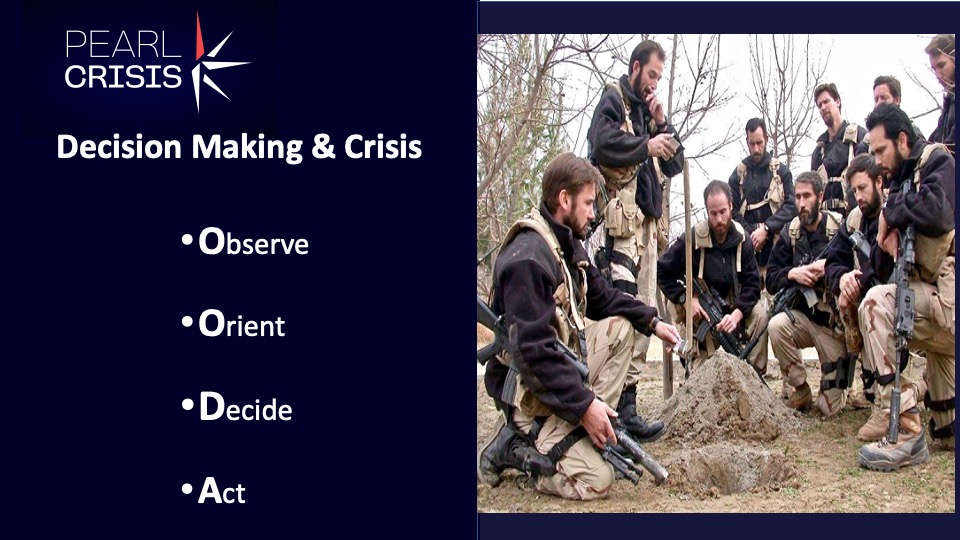Decision Making & Crisis
🤔What do US pilots in the Korean War have to do with 5-year-olds beating corporate executives at a construction game?
😵💫Nous know that the influx of information can saturate teams especially in times of crisis

👉We at Pearl often put teams of decision makers through crisis management exercises. We see these teams start endless discussions.
They are disoriented, sometimes paralyzed:
- Some seek the cathartic side of the discussion
- Some reconnect in this way
But as the situation demands, the “cascade of impacts” accelerates, these teams have trouble deciding when faced with new situations.
🤔Cognitive biases, as we know, will come into full play as our brain will tend to want to quickly classify situations by referring to known situations and intuition (cf. Daniel Kahnman)
😉The team is already struggling to agree on the decision mode
👉The team has to get past the moment of flabbergasting and realize that it will no longer function in “usual” mode when facing this new situation
👉Accepting the error is crucial because, like the pilots in Korea or Skillman’s Marshmallows challenge, the decision loop will shorten by admitting the imperfection
👉As is often the case, it’s the first step that counts. We need to free ourselves from the fear of error
👉 US pilots used to use OODA (Observe, Orient, Decide, Ac). It doesn’t matter what they call it: you have to “go for it”. Mistakes will be made but you have to be confident: we will correct the mistakes we will adjust
👉Crisis situations highlight the famous relationship between planning and adaptation. The decision-making process changes. Tactics temporarily take precedence over long-term strategy.
We have to admit the FLEXIBILITY needed to move from one to the other.
👉 HUMILITY and knowing one’s own limits is therefore also a key element. For, knowing how to reveal one’s vulnerabilities can be very useful to the team and to this change in the decision process.
This is how pilots were able to save their plane and the lives on board…
This is not an act of resignation but an act of LEADER courage.
👉Trust: we touch here, as by other examples, this relationship between leadership, team, collective intelligence, the relationship to error, the revelation of vulnerability and the foundation of everything: TRUST.
💡So what to do?
👉Know yourself and know each other.
👉Use a pragmatic method -behavior & decision- (BECALM)
👉Training
To know more about the “Marshmallow test” made famous by the engineer Peter Skillman:
- https://lnkd.in/eTnTRybh
- https://lnkd.in/eJpbQ-PG

